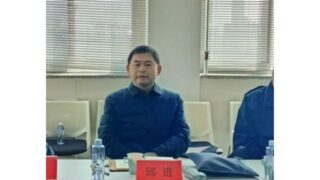Meet the new National Financial Regulatory Administration and National Data Bureau. Both mean more CCP control on the economy and the Internet.
by Tan Liwei


The attention of most Chinese in these days is focused on the “Two Sessions,” the annual meeting of the Chinese People’s Political Consultative Conference (CPPC) and the National People’s Congress (NPC), China’s puppet Parliament, whose role is to rubber-stamp what the Central Committee of the CCP decides.
One of the first speeches by President Xi Jinping was widely publicized. He celebrated the Party’s “victory” against COVID, tried to reassure about the economic data, and warned that China is under siege by the West, whose aim is to contain its growth and possibly overthrow the regime. These may look like platitudes, but are in fact the background of the two most significant decisions announced so far during the event. Since the West is attacking us, Xi insisted, we need more control and surveillance, including of the economic and financial sector, and certainly of the Internet (Xi’s usual obsession), because any weakness will be immediately exploited by the enemy.
Perhaps the most important development is the liquidation of the China Banking and Insurance Regulatory Commission (CBIRC), which so far has been a very powerful agency regulating Chinese banking and finance. In its place, a brand-new National Financial Regulatory Administration (NFRA) will be established to govern the mammoth China’s financial sector, although securities will not be included and will remain under the China Securities Regulatory Commission (CSRC).
The new NFRA will be under the direct administration of the State Council, while the old CBIRC was an independent agency under the State Council. This is not a minor change, as it means that the financial and banking sectors will be under a stricter and more direct CCP control. The NFRA will also absorb some competences of the People’s Bank of China.
There have been significant scandals in the Chinese financial sector, including accusations of money laundering and collusions with organized crime abroad. As usual in China, the answer of the CCP to scandals in which in fact it might have been directly involved is to tighten surveillance and control, putting all institutions into a firmer grip of the Party.
Another new institution emerging from the Two Sessions is the National Data Bureau (NDB), which will replace and absorb the Office of the Central Cybersecurity Commission (OCCC), under the direct supervision of the CCP’s Central Committee. This is a new step in Xi Jinping’s attempt to put all the digital sector under the centralized control of the Party. Xi constantly laments that the different control institutions are not effective enough, and the web remains “chaotic” and ungovernable. Together with the Digital China 2023 Plan, the establishment of the new Bureau is a new attempt at reaching the elusive goal of a total control of the Internet.









